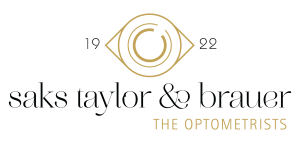For “2020: The Year of the Eye,” the American Academy of Ophthalmology intended to list 20 vision-healthy foods. Instead, they came up with 36! It is widely believed that failing eyesight is an inevitable aspect of aging, but it has been found that a healthy lifestyle, which includes a healthy diet, can significantly reduce the risk of problems with the eyes. In fact, the same diet that enhances heart health and general well-being will help the eyes. Just as the heart relies on larger blood vessels, the eyes rely on tiny arteries for oxygen and nutrients.
Many studies on age-related eye disease agree that certain specific nutrients are vital for eye health. These include zinc, copper, vitamins A, C and E, beta carotene, omega 3 fatty acids, lutein and zeaxanthin. While some nutrients keep the eyes healthy, some have been found to reduce the risk of developing eye diseases.
LEAFY GREEN VEGETABLES

Lutein and zeaxanthin are antioxidants found in high concentrations in the macula, the centre of the retina which is responsible for central vision. They are believed to protect eye tissues from sunlight damage and reduce the risk of cataracts and macular degeneration. The body does not naturally produce enough of these nutrients that it needs so it is important to include them in the diet. Leafy green vegetables that are rich in these antioxidants include spinach, kale, broccoli and peas. The body needs fat to absorb lutein and zeaxanthin, so it is best to eat them with healthy fat such as avocado or a drizzle of olive oil.
ORANGE-COLOURED FRUITS AND VEGETABLES

Vegetables such as carrots, pumpkin, squash and sweet potatoes are rich in beta carotene, which gives them their colour. Beta carotene is converted by the body into vitamin A, which helps protect the surface of the eye and is essential for combating eye dryness, maintaining good vision and decreasing the risk of vision loss due to macular degeneration and cataracts. Similar to lutein and zeaxanthin, beta carotene and vitamin A are absorbed best when eaten with healthy fat.
FOODS TO HELP US “C” BETTER
Vitamin C is critical to eye health. As an antioxidant, it helps protect the body from unhealthy lifestyle and environmental factors, which produce free radicals that can damage cells in the body. Vitamin C helps the body repair and grow new tissue cells and fight age-related eye damage, such as cataracts and macular degeneration. Citrus fruits, strawberries, tomatoes, apricots and certain vegetables are vitamin C-rich foods.
NUTS AND LEGUMES
Vitamin E is an antioxidant which keeps cells healthy and can protect the eyes from age-related damage. It is found in avocados, almonds and sunflower seeds. Other nuts and legumes which help maintain eye health include walnuts, cashews, lentils, and chia and flax seeds.
FISH

Studies have found that a diet rich in omega-3 fatty acids enhances tear function and may help to alleviate dry eyes and reduce the risk of developing eye disease later in life. Many fish are rich sources of omega-3 fatty acids, but the fish that contain the most beneficial levels of this nutrient are oily fish, for example salmon, tuna, trout, anchovies and sardines. Salmon is also a good source of vitamin D which helps protect the eyes against macular degeneration.
MEAT AND BEANS
The mineral zinc has been linked to long-term eye health by keeping the retina healthy and protecting the eyes from the damaging effects of light. The eyes themselves contain high levels of zinc, particularly in the retina and blood vessels surrounding the retina. Excellent food sources of zinc include beef, chicken, turkey and pork. Zinc can lower the amount of copper in the body, a mineral which is needed to help form red blood cells. Fortunately, zinc and copper can be increased together by including a variety of beans, such as kidney beans and lima beans in the diet.
EGGS
Eggs contain high levels of lutein and zeaxanthin, as well as zinc and vitamins C and E, all of which have an important role to play in minimising the risk of developing eye disease.
WATER
Maintaining hydration is essential for the whole body and can be particularly beneficial in reducing the symptoms of dry eyes. Drinking plenty of water to keep the body hydrated is important but green tea may be even more helpful in lowering the risk of developing cataracts and macular degeneration. Green tea contains catechins which have antioxidant and anti-inflammatory properties. Other foods high in catechins include dark chocolate, red wine, berries and apples.
SUPPLEMENTS

Is it advisable to take nutritional supplements? This is a difficult question which does not have a simple answer. Generally, it is believed that a healthy balanced diet can provide adequate nutrition, but certain people are unable to absorb the necessary nutrients from their diet or are on a restrictive diet, while others question the nutritional quality of our food. It is best to discuss these issues with a health care professional. Taking a specific supplement for macular degeneration is frequently recommended by eye care professionals.
While these foods have been separated into different categories according to the nutrients they contain, many foods contain a number of important nutrients and their benefits overlap. The key is to eat a balanced diet of various foods with varying nutrients. As one expert expressed it: “Eat a rainbow!” Most importantly, remember that it is never too late to start eating healthy!

